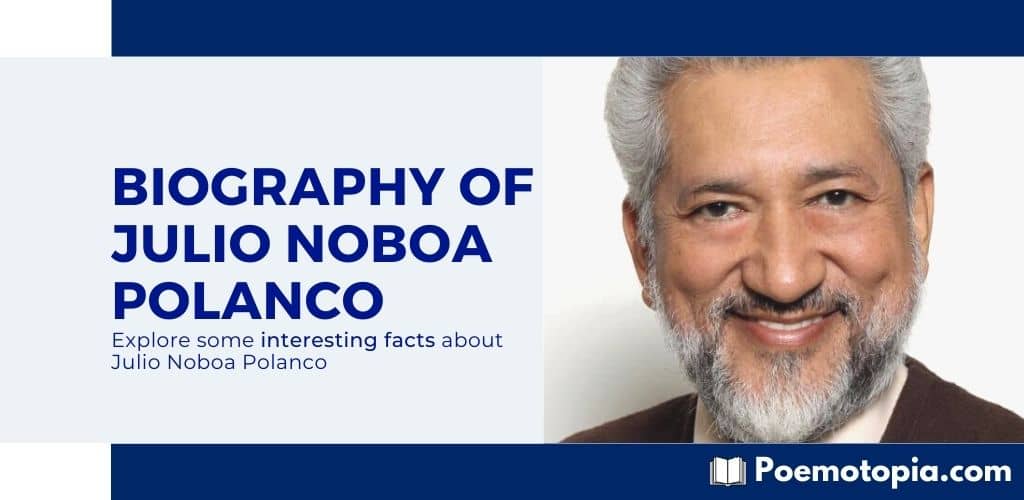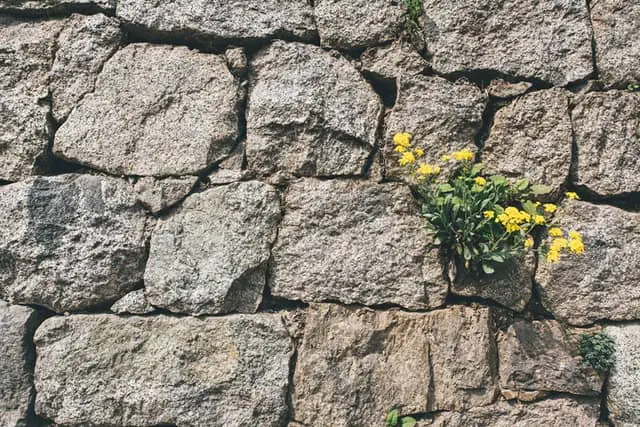Julio Noboa Polanco: Biography & Facts
Julio Noboa Polanco is a teacher, essayist, columnist, and poet. Polanco devoted himself to understanding the social elements that influence Latino history and their representation in the United States. He started writing poetry at an early age. His first and only published poem “Identity” centers around the themes of individuality and growing up. He is well-known for representing in bright light the history of Latin Americans in the United States.

Early Life & Education
Julio Noboa Polanco was born on 9 May 1949 to Puerto Rican parents, Simonita Noboa and Julio Noboa Gonzalez hailing from the historic town of Aguda. Polanco grew up in the Bronx, a borough of New York City. Later the family settled in Chicago. He studied at Lane Technical High School, Chicago until 1967 and graduated with a bachelor’s degree in Anthropology from the University of Illinois in 1974.
Teaching Career
Polanco started teaching mathematics after graduating from the University of Illinois. He joined the Latino Institute, Chicago as a Leadership Trainer, where he worked for four years. He received a fellowship from Northwestern University and completed his master’s in Education in 1981.
Polanco served in a number of positions in educational administration, especially as Division Director at the Association House of Chicago. Between 1989–1993, he worked as a writer and research editor. Later, he was appointed as Assistant Director at the Tomás Rivera Center, Trinity University.
Julia Noboa has been a professor of social studies at the University of Texas, El Paso. He taught a number of undergraduate, graduate, and doctoral courses incorporating critical pedagogy and multicultural education. He retired from his teaching position in 2014. Now, he lives with his wife Elsa in Santa Ana, Costa Rica.
Works
Polanco wrote the poem “Identidad” (later translated into English as “Identity”) in Spanish when he was in the eighth grade at Lane Technical High School. The break up with his girlfriend is thought to be the inspiration behind this poem. In this piece, his persona wishes to grow up like a weed, unlike a flower nurtured right from the beginning. The speaker wants to embrace the challenges open-heartedly without heeding others’ advice. Besides, the theme of Latino identity is also incorporated in this poem.
Polanco wrote a number of essays and articles on the history and struggle of Latin Americans in the United States. In his Ph.D. dissertation, Leaving Latinos Out: The Teaching of U.S. History in Texas (2003), Polanco holistically documents the representation of Latin Americans in the teaching of history in Texas public schools. Polanco, in his opinionated article published in Orlando Sentinel, presents the reasons for the systematic obliteration of Latinx identity in the US. He argues,
As a nation, we should do no less for a people who have given so much and yet have been recognized for so little!
His article “¡Puerto Rico se levanta!” or “Puerto Rico rises!” displays the pride in being a Puerto Rican. This piece explores the issues that stunted the island’s growth. Though the empires failed Puerto Ricans a number of times, Polanco confidently asserts,
Puerto Ricans have maintained a sense of pride in our identity and all things associated with it.
His latest collection of essays, For The Americas: Encounters with Unitarian Universalist Values (2022) embraces a wide variety of issues ranging from politics to religion, history to justice. The essays explore the harmony between the Unitarian Universalist values and the most progressive ideas and movements across the Americas.
Facts
Dr. Julio Noboa Polanco is a poet, writer, and teacher. He advocated for the Hispanic rights and worked for forging a distinct Latinx identity through his writings. Besides, he has been an active Unitarian Universalist throughout his career.
Julio Noboa Polanco was born in the Bronx, New York City. His family hailed from the historically important town of Aguda, Puerto Rico.
Polanco was born on 9 May 1949. He was brought up in the Bronx, New York, and Chicago.
As of 2022, Dr. Julio Noboa Polanco is 73 years old.
Polanco started writing poetry at an early age. He wrote several poems out of which only “Identity” (originally “Identidad”) was published in his lifetime.
Julio Noboa wrote the poem “Identity” while he was reading in Lane Technical High School, Chicago, somewhere around 1963. He wrote the poem in Spanish as “Identidad” in his eighth grade after the break-up with his girlfriend.
The Spanish text “Identidad” was first published in 1973. It was included in the 1977 issue of the Hispanic magazine Revista Chicano-Riqueña or Chicano-Puerto Rican Review. Later, poet Julio Noboa translated the poem into English as “Identity.”


I must congratulate the Poemotopia editors for providing quite a complete and accurate overview of myself and of my background, education, work and writings.
By contrast, ChatGPT, when asked about Julio Noboa has a mishmash of misinformation confusing me with another author by the same name and claiming that I was born in 1927 and am now deceased!
Thank you for making a good attempt to provide a clear and accurate overview of who I am.
Thank you so much for taking the time and reading our article. We always do our best to provide complete and authentic information, followed by a list of resources that could prove helpful for our readers.
We would love to hear your thoughts about the analysis of “Identity” that we published on our site.
Hi, nice to meet you. I have a homework about you. I am asked to write if you are still writing poems or if you have retired? I am glad that I get to learn about your poem “Identity” and the fact that we have to know ourselves and stand up for it. Please take care.